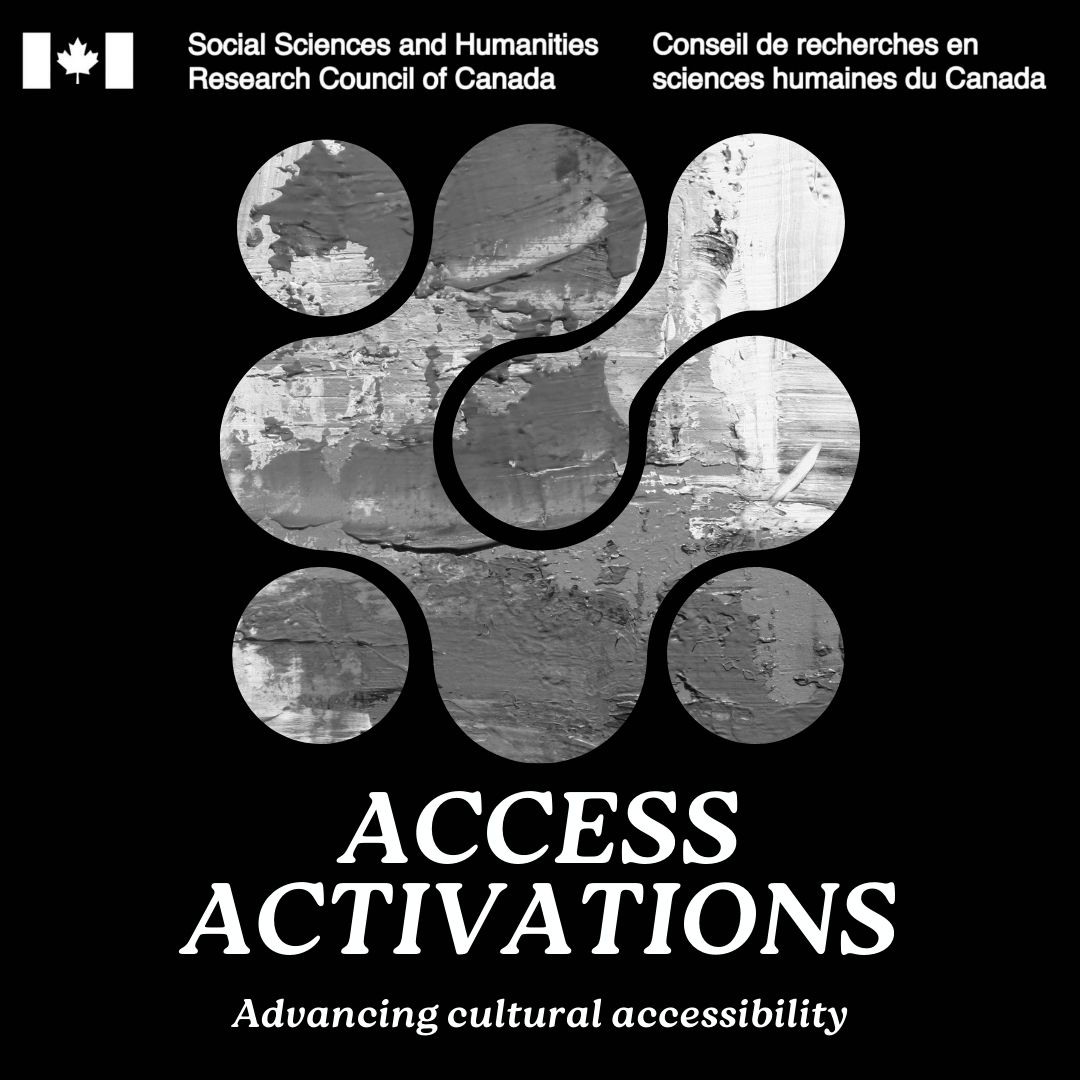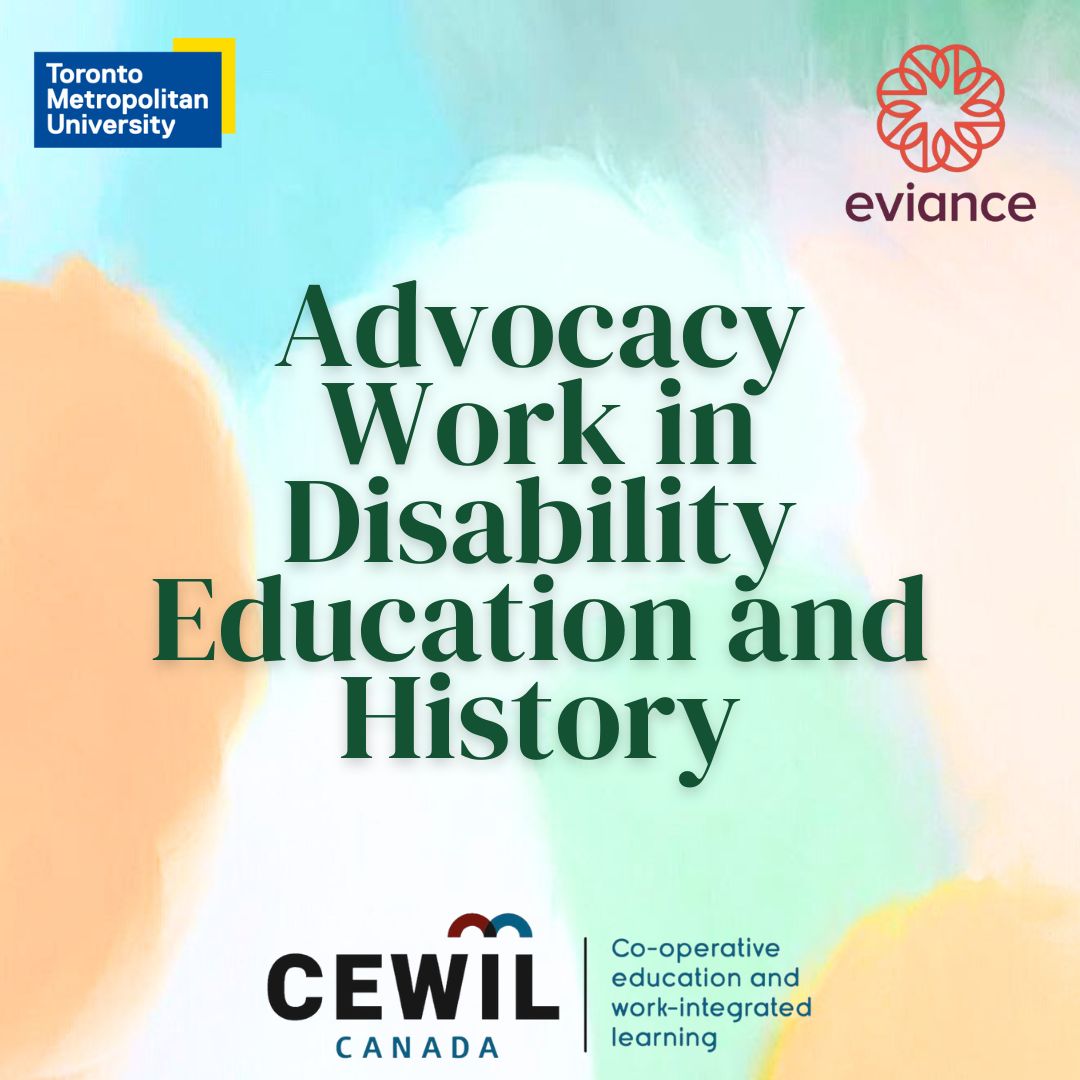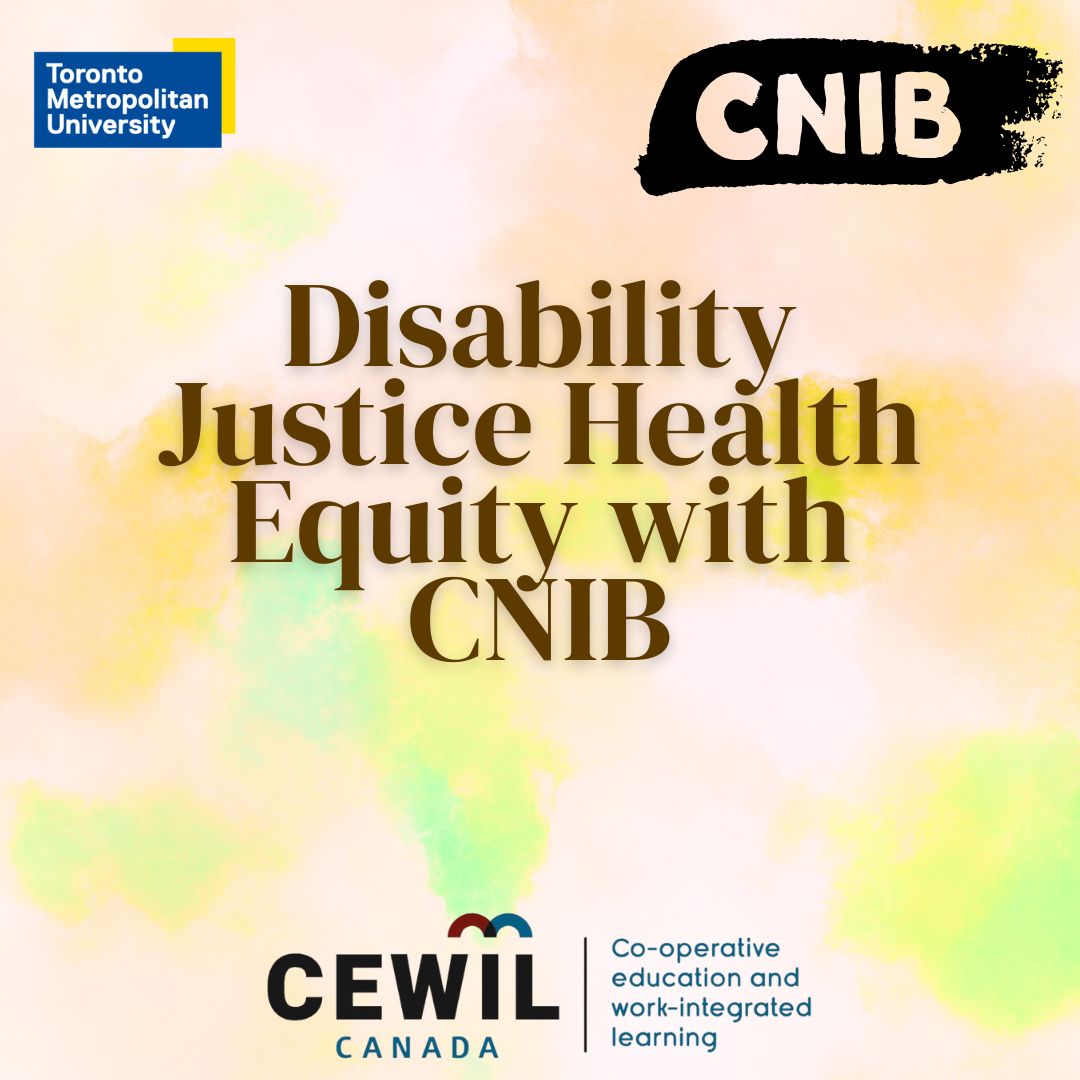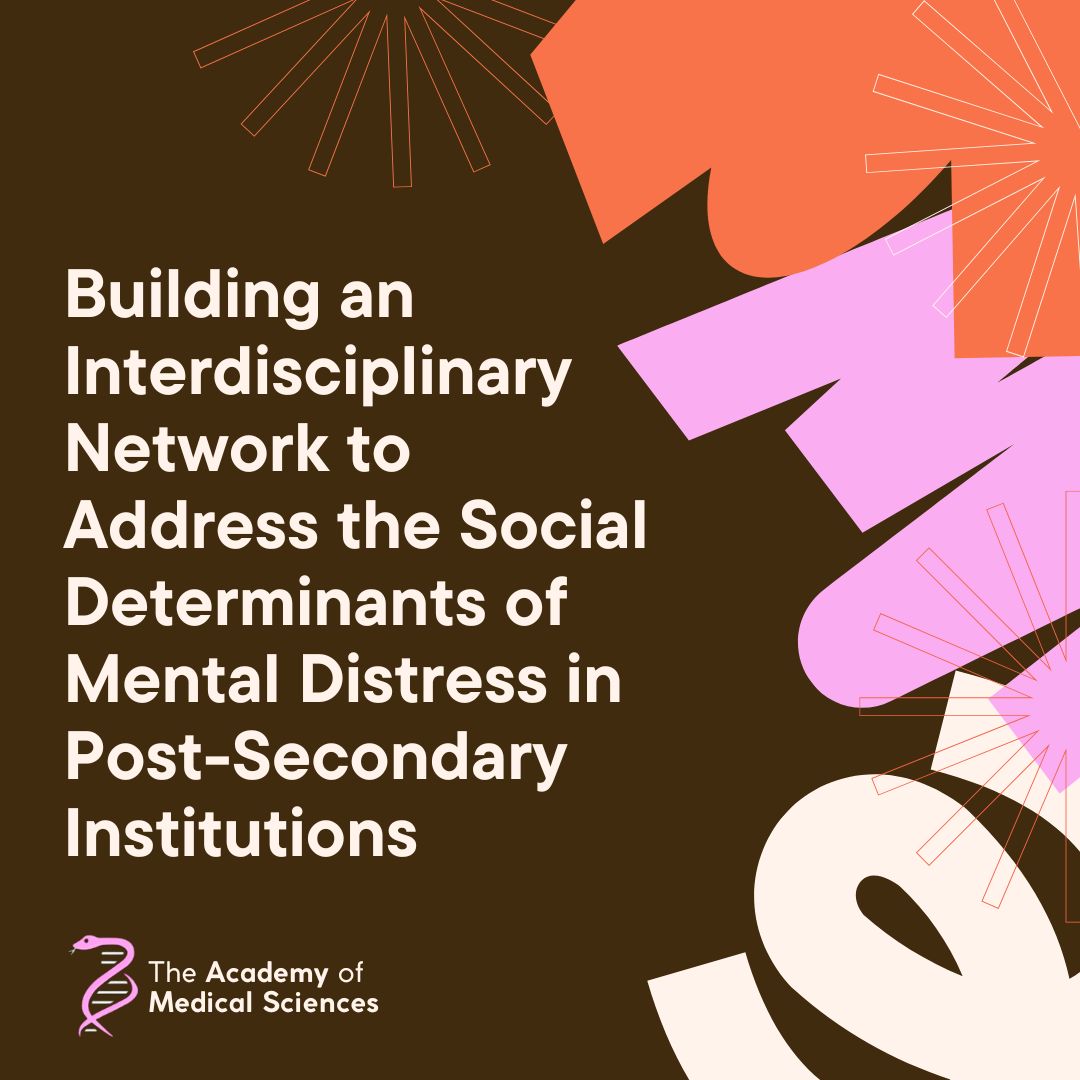Projects
Watch this space for emerging research projects out of the Disability Publics Lab.

Access Activations is a SSHRC-funded Insight Grant project. It trains Deaf, disabled, mad, and neurodivergent students as "access activators" who will partner with arts and culture organizations across Canada to develop access practices rooted in critical access frameworks. The project explores the potential for critical access and cultural accessibility to drive transformative change in Canada’s arts and culture sector toward intersectional justice.
Project Lead:
Dr. Eliza Chandler (opens in new window)
2024 - Present

The Enabling Accessible Healthcare Delivery project, funded by Ontario's Enabling Change program, is a collaboration with Ontario disability networks to develop healthcare curriculum. The curriculum will foreground the expertise of disabled people, emphasizing the intersectionality of healthcare experiences with disability, madness, and Deafhood, and their interrelationships with Indigeneity, Blackness, race, gender, 2SLGBTQ+ identities, class, age, and other power dynamics. Curriculum will be piloted in Fall 2024 and Open Educational Resources will be developed to serve as enduring digital modules adaptable to diverse healthcare and professional development contexts.
Project Leads:
Dr. Esther Ignagni (opens in new window) , Heather Willis (opens in new window) , and Lauren Munro (opens in new window)
2024 - Present

Advocacy Work in Disability Education and History is a Work-Integrated Learning course with Eviance, a community-based research and disability rights organization. Disability Studies students will work on two distinct projects: mobilizing Eviance’s research on inclusive education in post-secondary institutions to uncover systemic barriers and synthesize data for dissemination, and analyzing and promoting Eviance’s documentary series featuring disability activists and leaders. Through these projects, students will contribute to advancing disability rights and justice while gaining expertise in advocacy and knowledge mobilization.
Project Lead:

Disability Justice Health Equity with CNIB is a Work-Integrated Learning course in partnership with the CNIB Foundation and its Director of Disability Justice, Keya Osborne. Disability Studies students will conduct research on health equity issues affecting BIPOC individuals who are blind or have low vision, identifying systemic barriers in healthcare access and outcomes. Their work includes literature reviews and supporting a panel discussion with medical professionals and the Black disability community to address barriers, discrimination, and solutions for building trust in healthcare.
Project Lead:
Dr. Eliza Chandler (opens in new window)
2024

Building an Interdisciplinary Network to Address the Social Determinants of Mental Distress in Post-Secondary Institutions is a collaboration between Canadian and UK-based scholars funded by the Academy of Medical Sciences. The project will form a network of scholars from diverse fields including Disability Studies, Public Health, Sociology, Education, Medical Humanities, and Gender Studies. The network will explore best practices around the institutional conditions that improve or exacerbate distress in marginalised students and faculty with a focus on Black and transgender campus members at English and Canadian universities.
Canadian Lead:
Dr. Merrick Pilling (opens in new window)
UK Lead:
Dr. Nadena Doharty (external link, opens in new window) , Durham University
2024 - Present

Addressing the Gaps in Graduate Student Mental Health is a SSHRC-funded Connection grant. The project will mobilize findings from previous research bringing a critical disability studies lens to graduate student mental health by developing and disseminating a handbook for students and faculty about experiences of psychiatric distress in graduate education. This handbook will summarize the results from the previous study, offer tips and strategies specific to graduate student and faculty audiences, and offer resources that may support collective advocacy.
TMU Lead:
Dr. Merrick Pilling (opens in new window)
PI:
Dr. Lori Ross (external link, opens in new window) , Dalla Lana School of Public Health, U of T
2024 - Present

Social Justice Praxis and Clinical Chart Documentation in Mental Health Care is a SSHRC-Funded Connection Grant. This project involves the creation and implementation of a 3-hour interactive workshop on social justice praxis and chart documentation in mental health care. The goal of the workshop is to mobilize cutting-edge chart documentation theory and practice to support and encourage social justice praxis amongst current and aspiring mental health practitioners and social service workers. The workshop supports current and aspiring workers to use critical documentation practice as a strategy towards revealing and resisting pathologization of the everyday and the dehumanization of service users.
Project Lead:
Dr. Merrick Pilling (opens in new window)
2023 - Present

The Right to Decide: Ensuring Legal Capacity for Disabled and Mad People is a SSHRC-funded Partnership Engage Grant with the Institute for Research and Development on Inclusion and Society (external link, opens in new window) . This project responds to Article 12 of the UNCRPD (external link, opens in new window) which affirms the right for disabled people to be recognized as persons before the law and to enjoy legal capacity on an equal basis with others. It will generate theory and an inventory of tools for supported decision-making, a globally mobilized framework in which individuals are supported in making decisions that are aligned with their will and preferences.
Project Lead:
2023 - Present

Transforming the Disabling/Maddening State: Capacity and Decision Making was a Global Classroom in May 2023 put on through the Disability Publics Lab with funding from TMU Global. This event brought together activists, legal scholars, and students from Colombia, Scotland, and Canada to discuss the 'Right to Decide.' The conversation explored questions about enacting Article 12 of the UNCRPD (external link, opens in new window) through local advocacy, regional legal and policy change, and international information sharing. Attendees learned about transforming understandings of capacity and the social and material impact these concepts have on the lives of disabled and mad individuals. Student and alumni RAs produced a Pressbook, an open-access educational resource, to host recorded speaker presentations and transcripts, provide additional context, and facilitate ongoing learning through interactive activities.
Project Lead:
Dr. Esther Ignagni (opens in new window)
2022 - 2023

Stretching our Stories: Digital World-Making in Trouble Times is part of a SSRHC-funded Partnership Development Grant that mobilizes a research-creation program across four activist storyteller communities, including TMU. Design Fiction workshops explore how communities' storytelling re-emerges online and how digital worlds can resist reproducing oppressive elements of in-person interaction
Project Leads:
Dr. Esther Ignagni (opens in new window) and Dr. Eliza Chandler (opens in new window)
2022 - Present

Disability Art Histories and Legacies: Animating BEING Studio's archive is a community-engaged research project that works with BEING Studio, a disability arts organization in Ottawa. We are working with a group of artists from BEING Studio to explore its archives and consider BEING's contributions to disability arts. To share our findings, we will create two podcasts, one for BEING's podcast series SPEAK and the other for Disability Saves the World. Funded by a SSHRC PEG.
Project Lead:
Dr. Eliza Chandler (opens in new window)
2022 - Present

Accessible Engagement in the Arts is a series of Work-Integrated-Learning courses with Art Windsor Essex (external link) (AWE) that explore disability, Deaf, and mad studies scholarship in practice. Courses have focused on disability arts, critical access, and crip technoscience with students creating innovative engagement for AWE exhibits. Funded by CEWIL Canada (external link, opens in new window) .
Project Leads:
Dr. Esther Ignagni and Dr. Eliza Chandler (opens in new window)
2022 - Present

Working at the Intersections of Deafness, Blindness, and Disability is a series of Work-Integrated-Learning projects with DeafBlind Ontario Services (external link, opens in new window) (DBOS) where students helped to develop resources for training direct service professionals to work with Deaf, hard-of-hearing, non-verbal, and deafblind individuals with developmental disabilities. Funded by CEWIL Canada (external link) .
Project Lead:
Dr. Esther Ignagni (opens in new window)
2022 - Present

Stories of Access was a series of co-creation workshops where participating disabled and neurodivergent artists engaged in storytelling, knowledge sharing, and prototyping related to the theme of access in the arts. Participating artists explored the question, “how can we make art more accessible?” We are now creating a documentary to mobilize our findings to diverse publics. Funded by a SSHRC IDG and PG.
Project Lead:
Dr. Eliza Chandler (opens in new window)
2022 - 2023
 (external link, opens in new window)
(external link, opens in new window)
Black Oculars was a monthly virtual speaker series on Blackness, gender, and new surveillance technologies in Canada sponsored by a SSHRC Connections grant.
Project Lead:
Dr. Idil Abdillahi (opens in new window)
Sept. 2022 - Jan. 2023
 (external link)
(external link)
Cultivating Community Care was a student research project on how 2SLGBTQIA+ and mad/Deaf/disabled communities in Toronto understand and define community care.
Projecct Lead:
L Morris, MA student in Communication and Culture
Supervisor:
2022 - 2023